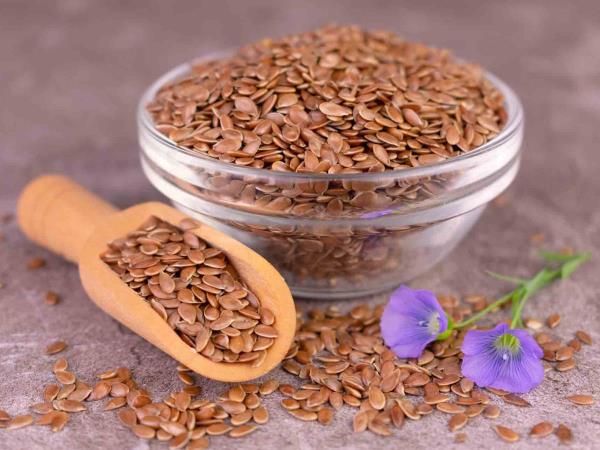Additionally, it contains a high amount of dietary fiber, which is crucial for healthy digestion. In 100 grams of flaxseed, there are approximately 27.3 grams of fiber, with 20–40% being soluble fiber and 60–80% insoluble fiber.
Flaxseed is also exceptionally rich in lignans, plant compounds with antioxidant properties. It contains up to 800 times more lignans than most other plant sources.
Health Benefits of Flaxseed
- Heart Health Support Flaxseed consumption can help lower levels of bad LDL cholesterol and blood pressure, reducing the risk of cardiovascular diseases. The omega-3 fatty acids in flaxseed contribute to heart health.
- Blood Sugar Regulation Studies have shown that flaxseed can improve blood sugar control in individuals with type 2 diabetes. The fiber in flaxseed slows down the digestion and absorption of sugars, aiding in stabilizing blood sugar levels.
- Prevention of Certain Cancers Due to its high lignan content, flaxseed can help reduce the risk of certain types of cancer, especially breast and prostate cancer. Lignans act as phytoestrogens that can influence hormonal balance in the body.
- Relief from Menopausal Symptoms The lignans in flaxseed act as phytoestrogens that can help alleviate menopausal symptoms such as hot flashes. Consuming flaxseed can contribute to better well-being during this stage of life.
- Support for Weight Loss Due to its high fiber content, flaxseed increases the feeling of fullness, which can help in appetite control and weight management. Fiber slows down digestion, making you feel full for longer.
How to Incorporate Flaxseed into Your Diet?
It is best to consume flaxseeds ground, as this way the body can more easily digest and absorb the nutrients. You can add them to yogurt, smoothies, oatmeal, or use them in baking. The recommended daily intake is 1–2 tablespoons of ground flaxseeds.
Flaxseed Oil – Is It a Good Choice?
Flaxseed oil is rich in omega-3 fatty acids, but it lacks the fiber and lignans present in whole or ground seeds. Therefore, flaxseed oil is a good supplement for obtaining healthy fats but cannot fully replace all the benefits of flaxseed.
Possible Side Effects
While flaxseed is generally safe for consumption, overeating can lead to bloating, gas, or diarrhea. Individuals taking blood-thinning medications should consult a doctor before consuming flaxseed, as it can enhance the effects of these medications. Pregnant and lactating women should also consult a healthcare provider before incorporating flaxseed into their diet.
Good to Know...
Flaxseed is a versatile food with many health benefits. Due to its rich nutrient composition and positive effects on the heart, digestion, blood sugar, and hormonal balance, it is recommended to include it in your daily diet. As with all dietary supplements, it is important to consult a healthcare professional before making significant changes to your diet.









 Would you like to be informed about news on the website?
Would you like to be informed about news on the website?

